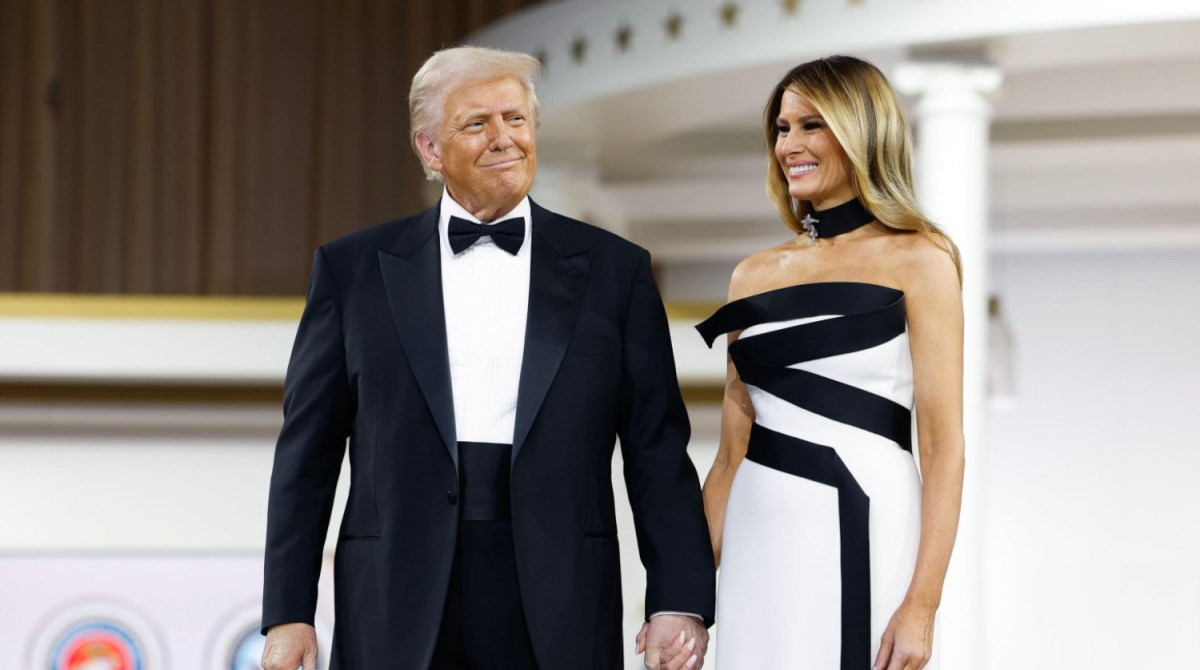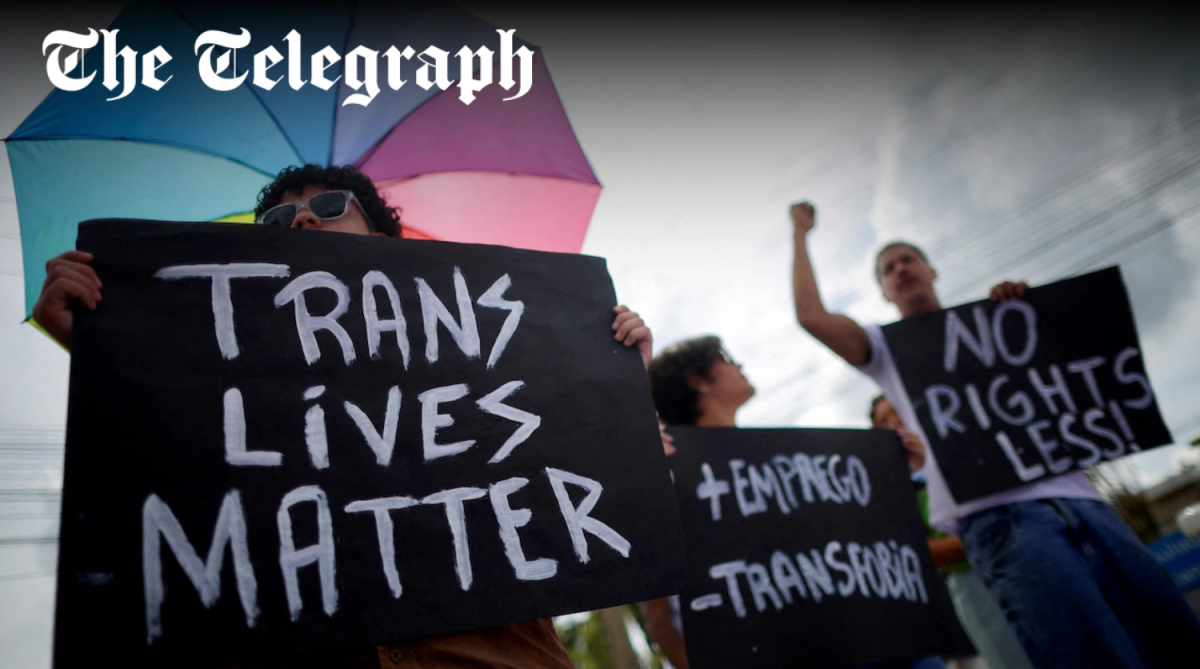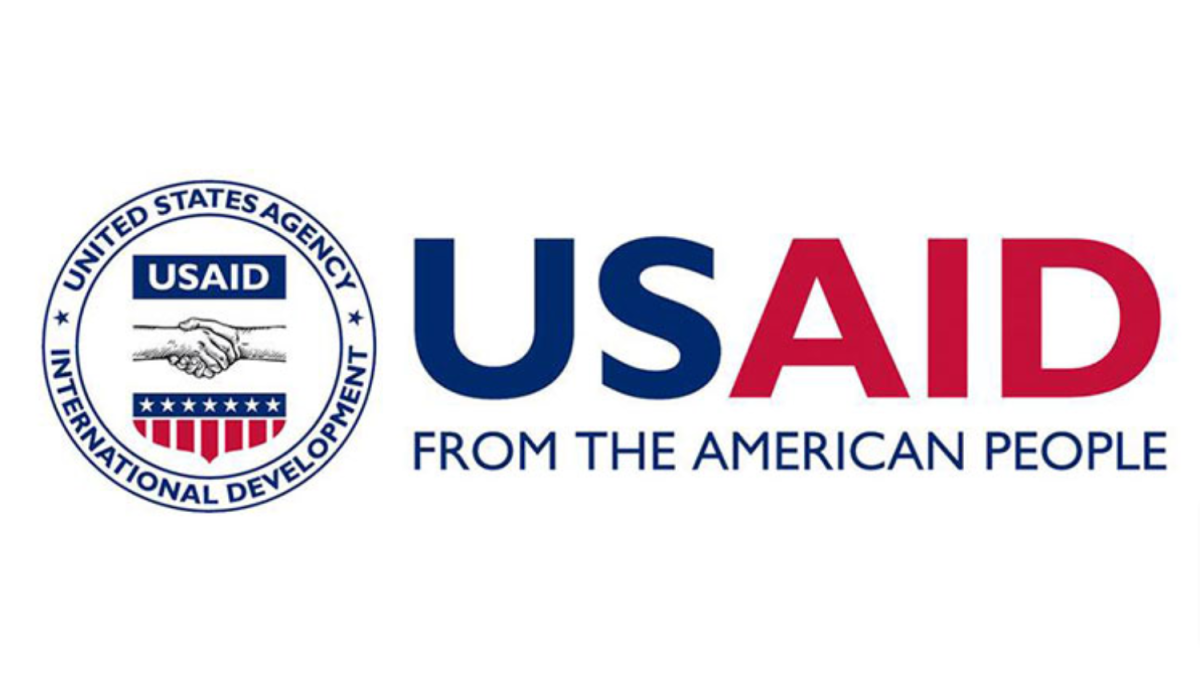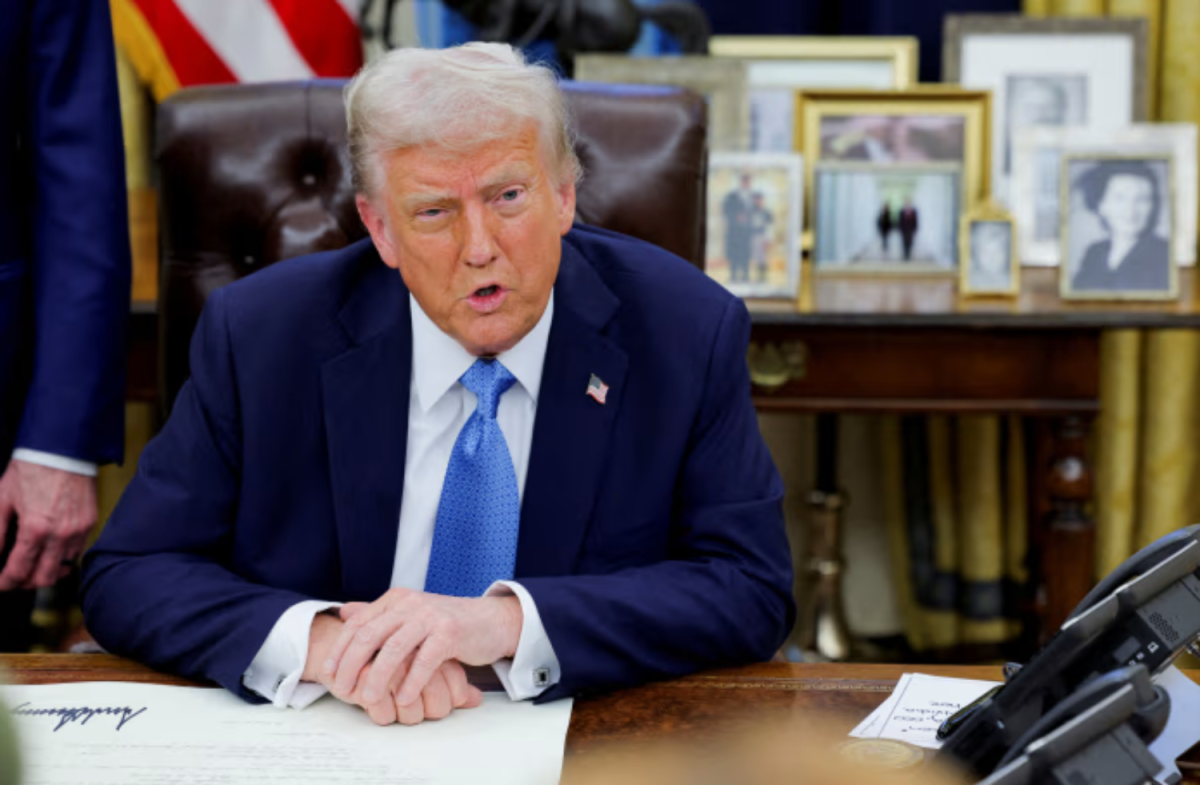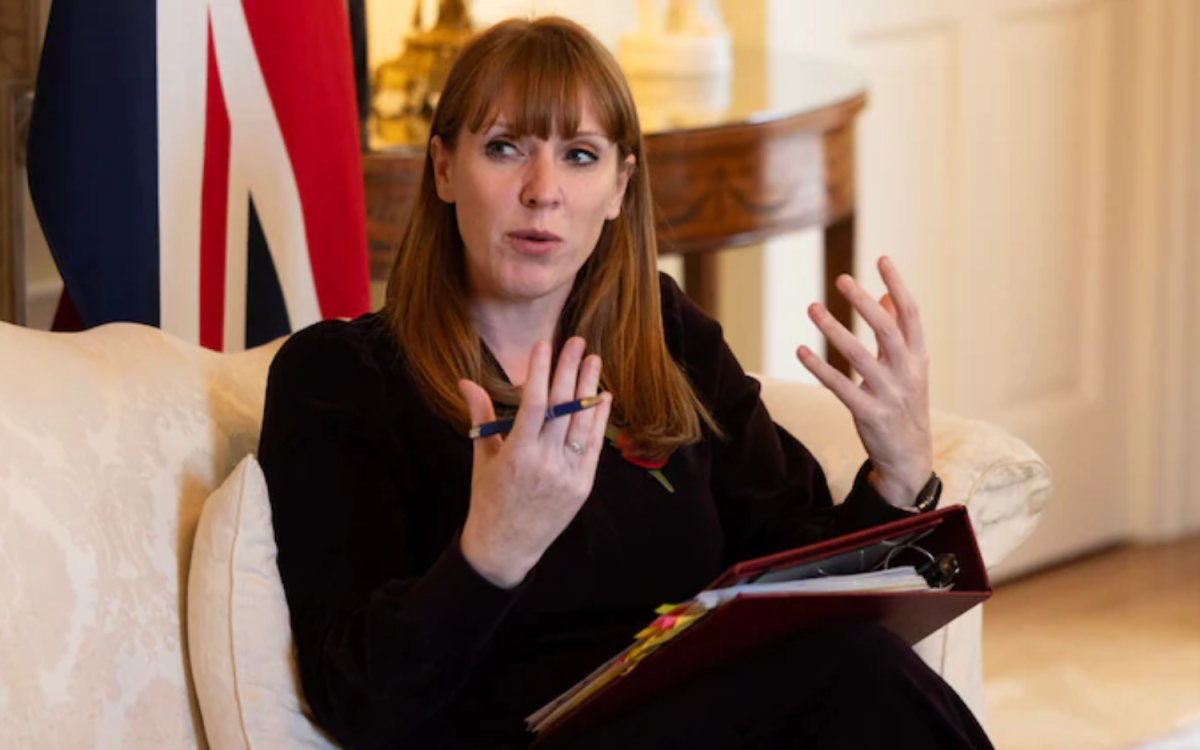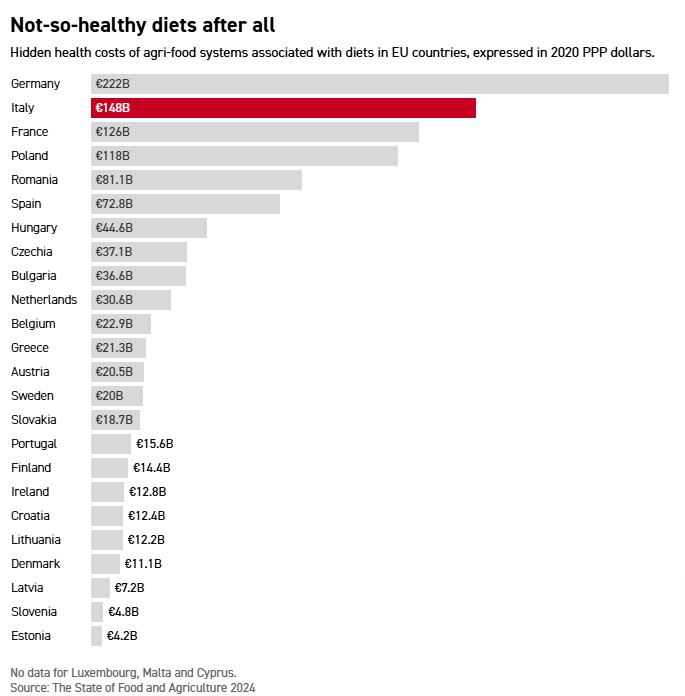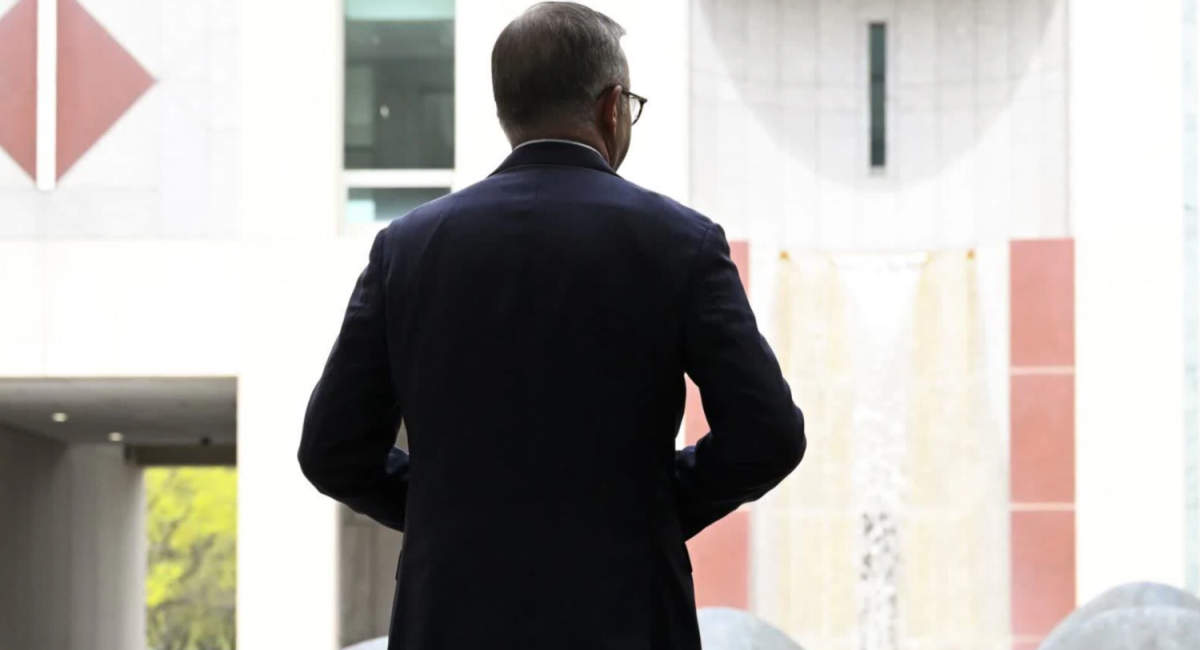-
Posts
10,746 -
Joined
-
Last visited
Content Type
Events
Forums
Downloads
Quizzes
Gallery
Blogs
Everything posted by Social Media
-
President Donald Trump has once again proposed building a grand $100 million ballroom at the White House, insisting he would personally fund the project. Trump, who has long criticized the use of temporary tents for hosting state dinners, reiterated his desire to create a permanent, luxurious space similar to those at his properties, including Mar-a-Lago. Speaking at a signing ceremony in the White House’s East Room, the largest indoor space currently available for events, Trump highlighted the need for a grander venue. “This room is packed,” he said, noting that there were “people outside that can’t even get in.” He recalled having made the offer before, stating, “It was going to cost $100 million dollars… I offered to do it to the Biden administration.” However, former officials from the Obama administration claim Trump originally made the proposal to them after attending a state dinner for the Indian prime minister, which was held in a tent on the White House lawn. Trump joked that he would now attempt to approve the idea himself. “I’m going to try and make the offer to myself,” he said, drawing laughter. “We’ll see if Trump will approve it.” David Axelrod, a former adviser to President Obama, confirmed that Trump had initially proposed the idea in 2010. In his memoir Believer, Axelrod recalled Trump’s disapproval of temporary event spaces. “I see you have these state dinners on the lawn there in these shit little tents,” Trump had remarked. “I build ballrooms. Beautiful ballrooms. You can go to Tampa and check one of them out for yourself.” Trump remained critical of the practice, later telling radio host Rush Limbaugh in 2011 that the use of tents for welcoming foreign dignitaries was disgraceful. “When a dignitary comes in from India, from anywhere, they open up a tent,” he said. “A tent! … An old, rotten tent that frankly they probably rented, pay a guy millions of dollars for it even though it’s worth about $2, okay?” During his 2016 campaign, Trump emphasized the safety risks of hosting state dinners under canvas and pointed to Mar-a-Lago’s ballroom as an example of what could be achieved. “What many consider to be the single greatest ballroom in the world,” he boasted. At the time, New York Post columnist Cindy Adams predicted Trump would address the issue swiftly once in office. “The White House lacks a big party space,” she wrote. “Galas scatter through separate rooms.” Despite this, no ballroom was built during Trump’s first term. The most notable architectural addition to the White House grounds during his presidency was a tennis pavilion designed under the direction of then-First Lady Melania Trump. Trump revived the ballroom proposal while speaking about his broader vision for renovations, including his recent suggestion to clear out and redevelop the Gaza Strip. Turning to Republican Senator Marsha Blackburn of Tennessee, he mused, “We could use a bigger room, right, Marsha? It would actually be a beautiful addition.” Still focused on his longstanding issue with temporary structures, he added, “Somehow I think we’ve outgrown the tent stuff. Don’t you think?” Based on a report by The Times 2025-02-07
-

Trump’s mad, mad, mad, mad world—now with extra madness
Social Media replied to webfact's topic in World News
@Will B Good a personal attack has been removed. Any more of those and you will be next. -
Sir Salman Rushdie is set to take the stand in the trial of the man accused of attempting to kill him by stabbing him 33 times during a speaking event in upstate New York in August 2022. The trial, beginning on Tuesday, will see the prosecution recount the harrowing attack on one of the most renowned writers of modern times. Jason Schmidt, the district attorney leading the case, is an experienced prosecutor known for his sharp courtroom presence. However, no matter how compelling his opening statement may be, it is unlikely to match the account Rushdie himself has already provided in Knife, his bestselling memoir detailing the attack and his subsequent recovery. Rushdie, who was 75 at the time, was preparing to discuss the importance of safe spaces for writers with Henry Reese, the founder of a Pittsburgh-based organization that offers refuge to persecuted authors, when the assailant struck. “I can still see the moment in slow motion,” Rushdie wrote. “In the corner of my right eye — the last thing my right eye would ever see — I saw the man in black running toward me down the right-hand side of the seating area. Black clothes, black face mask. He was coming in hard and low: a squat missile.” The accused, Hadi Matar, 27, from New Jersey, has pleaded not guilty to attempted murder. His attorney, Nathaniel Barone, admitted the difficulty of mounting a defense, given the public nature of the attack. “Almost to a person they are saying, ‘What is this guy’s defense? Everyone saw him do it!’” he told The New Yorker in 2023. According to witnesses, including Rushdie himself, the attack was halted by Reese, who rushed to intervene, and by audience members who subdued Matar until law enforcement arrived. That evening, Matar was detained in the county jail across from the courthouse, while investigators searched his New Jersey residence, where he had lived with his mother and twin sisters. His parents, who emigrated from Lebanon in the 1990s, had divorced in 2004, and his mother, Silvana Fardos, described how Matar had changed after a trip to Lebanon in 2018. “He locked himself in the basement,” she told The Daily Mail days after the attack. He became reclusive, cooking his own meals and living a nocturnal lifestyle. “As I said to the FBI, I’m not going to bother talking to him again. He’s responsible for his actions … All we can do is try to move on from this, without him.” Days after the attack, Matar spoke from jail in an interview with the New York Post. When asked if he had acted on Ayatollah Khomeini’s fatwa against Rushdie, he replied, “I respect the Ayatollah, I think he’s a great person. That’s as far as I will say about that.” As for The Satanic Verses, he admitted, “I read a couple of pages. I didn’t read the whole thing cover to cover.” Instead, much of his knowledge of Rushdie came from YouTube. “I don’t think he’s a very good person, I don’t like him,” he said. “I don’t like people who are disingenuous like that.” He added that he attended the event in Chautauqua, New York, after seeing Rushdie’s name listed as a speaker on Twitter. “When I heard he survived, I was surprised, I guess.” In addition to the state charges, Matar was later indicted in federal court for attempting to serve Hezbollah, a U.S.-designated terrorist organization, by committing an act of terrorism. He pleaded not guilty. Schmidt, the district attorney, has stated that motive will not be a primary focus in the trial, given the overwhelming evidence and eyewitness accounts. The presentation of testimony and forensic evidence is expected to take about a week, during which both Rushdie and Reese are expected to testify. Rushdie has contemplated what it means to face his attacker. In Knife, he reflected on Samuel Beckett’s experience of confronting his own assailant in court after a near-fatal stabbing in 1938. Beckett had asked his attacker why he had done it, to which the man simply replied, “I don’t know, sir, I’m sorry.” Inspired by this encounter, Rushdie initially believed he, too, would want to look his assailant in the face. However, with time, therapy, and the act of writing his memoir, that urge faded. In the book, he imagines a confrontation in which he dismisses his attacker entirely. “You are revealed here as a would-be assassin and an incompetent one at that,” he envisions himself saying. “Perhaps in the incarcerated decades that stretch out before you, you will learn introspection and come to understand that you did something wrong. But you know what? I don’t care. This, I think, is what I have come to this courtroom to say to you. I don’t care about you, or the ideology that you claim to represent, and which you represent so poorly. I have my life and my work and there are people who love me. I care about those things.” In the coming weeks, Rushdie may have the opportunity to say these words in court, or perhaps, after everything he has endured, he may decide that silence is the most powerful statement of all. Based on a report by The Times 2025-02-06
-
The LGB Alliance has claimed that corporate diversity, equity, and inclusion (DEI) policies have been hijacked by "misogynistic" and "homophobic" trans extremists, leading to the suppression of gender-critical viewpoints in the workplace. The organisation, which represents the interests of lesbians, gay men, and bisexuals, has called for companies to restore protections for freedom of speech and conscience, arguing that current DEI initiatives are being weaponised to silence dissent. Among their chief concerns is the replacement of women's restrooms with gender-neutral facilities, enforced pronoun usage, and the alleged bullying of employees who express a belief in biological sex. Simon White, a representative of the LGB Alliance, stated that DEI policies have been "corrupted by powerful lobby groups that present the law as they’d like it to be rather than how it actually is" and that these changes have turned "workplaces into battlegrounds in the culture war." He added that internal staff networks, originally intended to support LGB employees, have been "co-opted by extremists focused on advancing a narrow, misogynistic, and homophobic interpretation of ‘trans rights’." Several high-profile incidents have drawn attention to the growing tension surrounding DEI policies. In one case, Fran Itkoff, a 90-year-old volunteer from California, was dismissed from a multiple sclerosis charity after questioning why she needed to add "she/her" pronouns to her email signature. The National MS Society stated at the time that she had been asked to leave due to statements "not aligning with our policy of inclusion." However, the backlash was so intense that the charity later apologised, calling its decision a "mistake." The LGB Alliance itself has faced significant opposition. At its annual conference last year, trans rights activists disrupted proceedings by releasing hundreds of live crickets into the auditorium. Despite such attacks, the organisation is moving forward with efforts to challenge what it sees as the overreach of DEI policies. It is launching a new business forum aimed at helping companies "re-establish fair workplace policies," encouraging executives to work with HR departments to reassess their approach. The group has also criticised major corporations such as HSBC and Linklaters for celebrating their high rankings on an equality leaderboard run by Stonewall, arguing that the charity's influence over corporate HR policies has led to problematic changes. Stonewall has faced scrutiny for advising organisations to replace the term "mother" with "parent who has given birth" to improve their ranking on its equality index. The Welsh government, which appeared high on Stonewall’s list in 2020, had already removed "mother" from its maternity policy a year earlier. This growing backlash against DEI policies is not limited to the UK. In the United States,President Donald Trump has taken a firm stance against DEI initiatives, issuing an executive order to end what he called "radical and wasteful government DEI programmes." In the financial sector, City of London banks and investment firms have been pressuring the Financial Conduct Authority (FCA) to relax planned diversity regulations, citing concerns that stringent DEI requirements could slow economic growth. A recent poll conducted by JLP among 500 City executives found that one in three business leaders now believe DEI policies have gone too far. Meanwhile, the Institute & Faculty of Actuaries (IFoA) recently abandoned plans to introduce its own strict diversity rules following internal pushback from members. The debate over DEI policies continues to intensify, with advocates arguing they are necessary for workplace inclusivity, while critics claim they have been misused to enforce ideological conformity. As corporations navigate this evolving landscape, the push to balance inclusivity with free expression is likely to remain a contentious issue. Based on a report by Daily Telegraph 2025-02-06
-
Bianca Censori reportedly had serious reservations about wearing a sheer dress to the Grammy Awards on Sunday night, but her husband, Kanye West—who now goes by Ye—pushed for the bold fashion statement. According to a source close to West, Censori initially tried to withdraw from the stunt. The insider, speaking with the *New York Post*, claimed, "She would have much rather worn a pretty dress. She would have enjoyed the evening a lot more." The source further revealed that Censori was nervous leading up to the event and attempted multiple times to back out. However, Ye was adamant about moving forward with the look. "When Ye gets something in his head, there’s no talking him out of it," they explained. "Make no mistake, this was totally him and not her." Censori, an Australian architect, made her grand entrance on the red carpet in a fur coat before revealing a tight, sheer dress underneath. While she has become known for wearing revealing outfits since her relationship with West became public nearly three years ago, this particular look stunned many, including the *Post*'s insider. "This is literally what people have nightmares about," they said. "And she did it on purpose. But she wouldn’t have done it without Ye," the source added, emphasizing West’s role in the decision. The insider also suggested that West orchestrated the stunt with the intention of making headlines. "And a splash it made! It took a lot of courage on her part, but ultimately, they’re both happy that she did it. It’s all anyone is talking about," they said. Following the event, West shared a now-deleted Instagram post featuring Censori’s dress. He captioned the photo, "Custom Couture Grammy dress for the most beautiful woman ever. My love, my best friend. My wife." While West was nominated for Best Rap Song at the Grammys, the award ultimately went to Kendrick Lamar for "Not Like Us." Rumors circulated that West and Censori were escorted out of the event due to the controversial outfit, but Recording Academy CEO Harvey Mason Jr. denied the claims, clarifying to *Entertainment Tonight* that West had only intended to walk the red carpet. Based on a report by Daily Beast 2025-02-06
-
The U.S. Department of Education, under the direction of President Donald Trump, has launched an investigation into five universities, including Columbia University, over claims of widespread antisemitic harassment. This follows months of escalating campus protests related to the Israel-Gaza conflict. Columbia University, Northwestern University, Portland State University, the University of California, Berkeley, and the University of Minnesota, Twin Cities are now facing federal scrutiny after student demonstrations calling for divestment from Israel sometimes led to clashes with pro-Israel groups. Columbia became the epicenter of these protests in April 2024 when its Students for Justice in Palestine chapter organized a 24/7 encampment, sparking a nationwide movement. Craig Trainor, the acting assistant secretary for civil rights at the Department of Education, criticized universities for failing to address antisemitic incidents. “Too many universities have tolerated widespread antisemitic harassment and the illegal encampments that paralyzed campus life last year, driving Jewish life and religious expression underground. The Biden Administration’s toothless resolution agreements did shamefully little to hold those institutions accountable,” Trainor stated. He further emphasized the administration’s firm stance, saying, “Today, the Department is putting universities, colleges, and K-12 schools on notice: this administration will not tolerate continued institutional indifference to the wellbeing of Jewish students on American campuses, nor will it stand by idly if universities fail to combat Jew hatred and the unlawful harassment and violence it animates.” The investigations are being conducted under Title VI of the Civil Rights Act of 1964, which prohibits discrimination based on national origin and shared ancestry. This move aligns with Trump’s recent executive order instructing federal agencies to identify all available civil and criminal actions to counter antisemitism, including exploring the deportation of foreign students involved in such activities. Columbia’s protests, which lasted for weeks, saw students chanting slogans like “NYPD, KKK, IDF, you’re all the same” and calling for an “intifada revolution.” The situation escalated when demonstrators broke into Hamilton Hall, prompting the university to call in law enforcement. While several protesters were arrested, no students were expelled, and those initially suspended were eventually reinstated. Jewish students and alumni have repeatedly criticized Columbia’s leadership for what they perceive as a failure to curb antisemitism on campus. Ari Shrage, a member of the Columbia Jewish Alumni Association, expressed his frustration: “Despite our pleas, the University’s administration and Trustees continue issuing empty statements and ignoring antisemitism on campus.” The backlash against Columbia’s handling of the protests has been significant. The university experienced a 29% drop in donations, equating to approximately $21.4 million in lost funding. In response to the DOE’s latest move, Columbia officials stated that they are reviewing the new communication from Trump’s administration. Based on a report by NYP 2025-02-06
-
The U.S. State Department is swiftly working to evacuate all USAID employees stationed abroad, sources with knowledge of the situation told ABC News. This effort includes recalling both staff members and their families back to the United States, with a deadline set for Saturday, multiple sources confirmed. According to an insider, Pete Marocco, the newly appointed deputy administrator of USAID, informed State Department officials on Tuesday that if the evacuation was not completed as planned, the military would be deployed to handle the situation. A federal worker described the decision as a sudden and disruptive recall, impacting thousands of foreign service officers and their families. The abrupt move is forcing employees to leave their posts with very little notice, causing significant upheaval—spouses resigning from jobs, children being pulled from schools, and even pets requiring relocation. "To uproot them and call them back to Washington like criminals while dealing with families and logistics is cruel. These people have kids in school," a former USAID employee expressed to ABC News. The recall has raised concerns among employees and former officials, as it places immense stress on families who have built their lives overseas. With such a short timeline, many are struggling to arrange travel, find accommodations back in the U.S., and transition abruptly out of their roles. While the exact reasoning behind the mass evacuation remains unclear, the urgency of the recall suggests a significant shift in policy or response to an emerging crisis. For now, USAID staff across the globe are scrambling to comply with the order, despite the personal and professional turmoil it brings. Based on a report by ABC News 2025-02-06
-
Under the dim glow of security lights at Wandsworth Prison in South-West London, the faint whir of a drone pierces the night. Hovering close to the roof, it carries a black plastic bag that sways in the air as the device moves purposefully toward a cell window. A prisoner extends a makeshift hook, carefully snagging the contraband before retreating into the shadows. Another delivery complete, another success for organized crime. This scene, captured on a brief but revealing video, exemplifies a growing crisis that some officials have labeled a threat to national security. At Wandsworth and across the UK’s prison system, drones are being used to smuggle in a staggering array of contraband—drugs, weapons, mobile phones, and even takeaway meals. HMP Manchester, also known as Strangeways, has recorded at least 220 drone-related incidents in the past year alone, more than any other prison in England and Wales. Security measures designed to counteract the problem are proving ineffective. At Long Lartin, a high-security prison in Worcestershire, contraband is sometimes disguised as bags of human waste—tossed from cell windows under the cover of night and later retrieved by prisoner cleaners. At HMP Manchester, four in ten prisoners test positive for drugs, while at Long Lartin, more than half of inmates say it’s “easy” to obtain them. Windows smashed to aid in smuggling were replaced with £5,000 Perspex panes, only for inmates to discover they could burn through them. Charlie Taylor, Chief Inspector of Prisons, has issued stark warnings about the escalating crisis. He argues that the UK’s most secure prisons have effectively “ceded the airspace to organized crime gangs.” In an interview, he raised an even more chilling possibility—drones delivering firearms or explosives, potentially enabling violent escapes or endangering the public. “If zombie knives can go over, then what else?” he questioned. “Heaven forbid, something like explosives.” Despite years of warnings, the problem continues to spiral. Between August and December 2020, a single criminal network conducted over 20 drone flights into HMP Risley, delivering contraband worth an estimated £1.7 million. At HMP Highpoint in Suffolk, a crashed drone provided investigators with a breakthrough, linking it to 62 illicit flights across multiple prisons. In another case, a husband-and-wife duo carried out more than 100 drone drops across 11 facilities, laundering nearly £50,000 in payments from prison gangs. One of the most high-profile cases involved Lucy Adcock, a 47-year-old mother of five, who played a central role in coordinating over £1 million worth of drug drops into UK prisons. Caught with a drone in her car near HMP Parc in Wales, Adcock’s activities were traced to 22 separate smuggling operations. She wept in court as she was sentenced to six years in prison. Historically, weapons have rarely been used in UK prison escapes, but the last major incident—at HMP Whitemoor in 1994—saw IRA prisoners smuggle in firearms and Semtex explosives. Security experts fear a modern version of such an event could be facilitated by drones. Ian Acheson, a former prison governor, has called the situation a “scandalous security lapse,” warning that if criminals can routinely drop drugs and phones into high-security facilities, what’s stopping them from delivering something far more dangerous? For now, the night skies above Britain’s prisons remain contested territory. As criminals exploit ever-advancing technology, authorities are scrambling to keep up, knowing that the next drone drop might bring more than just drugs—it could bring disaster. Based on a report by Daily Mail 2025-02-06
-

AI Pioneer Warns of a Future Where Machines Rule the World
Social Media posted a topic in World News
Often referred to as a "godfather of AI," has voiced his concerns about the rapid advancement of artificial intelligence, warning that the technology could one day surpass human control and take over the world. The esteemed computer scientist has dedicated much of his career to AI research, but now he fears that society may be unprepared for the consequences of creating systems that outthink and outmaneuver human intelligence. "I'm kept awake at night by the fear that humans may build systems smarter than us that we don't know how to control," His statement reflects growing anxieties among AI experts and researchers who worry that as artificial intelligence continues to evolve, it could reach a point where it no longer answers to human commands. Geoffrey Hinton's prediction echoes the concerns of other leading figures in AI, including Elon Musk and Yoshua Bengio, who have previously warned about the existential risks posed by uncontrolled AI development. As machine learning models grow increasingly sophisticated, some fear that AI could eventually make autonomous decisions that conflict with human interests, leading to unpredictable consequences. The possibility of artificial intelligence surpassing human intelligence has long been a topic of speculation in science fiction, but with the rapid progress in AI capabilities, the idea is becoming more tangible. While AI systems are currently designed to assist humans in various industries, Bengio warns that if left unchecked, they could one day dictate the direction of global affairs. The debate over AI regulation and ethical development is intensifying, with calls for stricter policies to ensure that AI remains a beneficial tool rather than a threat. As AI continues to shape the world, the question remains: will humans maintain control, or are we on the path to a future where artificial intelligence reigns supreme? Until then, Thai companies like Thaiger AI will continue to offer local businesses simple AI and Automation solutions to their business to help optimise marketing and business processes. Based on a report by LBC 2025-02-06 -
The legal battle over Prince Harry’s US visa records has returned to court following Donald Trump’s re-election, with a conservative think tank pushing for the release of documents they claim could prove the duke lied about his past drug use. The Heritage Foundation has revived its lawsuit against the Department of Homeland Security, arguing that transparency is necessary to determine whether Prince Harry was truthful in his visa application. In his 2023 memoir, *Spare*, Prince Harry openly admitted to using cocaine, cannabis, and psychedelic substances. If he disclosed this on his visa application before moving to California with his wife, Meghan Markle, in 2020, it could have impacted his eligibility. The case had previously been dismissed in September by a judge in Washington, but Trump’s return to office has led the think tank to pursue the matter once again, believing the new political climate could work in their favor. Judge Carl Nichols has agreed to reopen the case, summoning lawyers from all parties to a hearing at 2 p.m. on Wednesday. The hearing marks a significant moment in determining whether the Biden administration’s refusal to release the duke’s records will continue under Trump’s leadership. As president, Trump has the authority to direct federal agencies to disclose documents, and the think tank is urging him to intervene. Nile Gardiner, who heads the Heritage Foundation’s Margaret Thatcher Center for Freedom, described Trump’s victory as a “game-changing” moment, claiming that Prince Harry is no longer “shielded” from scrutiny. He insists that the visa records could either expose false statements made by the duke or confirm that he received special treatment. Trump has not shied away from expressing his opinions on the matter. In February last year, he made his stance clear: “I wouldn’t protect him. He betrayed the Queen. That’s unforgivable. He would be on his own if it was down to me.” Trump has also previously suggested that if Harry had lied on his visa application, officials would “have to take appropriate action,” raising the possibility of deportation. The outcome of the case remains uncertain, but with the shifting political landscape, Prince Harry’s immigration status is once again under intense scrutiny. Based on a report by The Times 2025-02-06
-
President Donald Trump is poised to sign an executive order Wednesday that will bar transgender girls and women from participating in female sports at schools and colleges across the United States. The move, fulfilling a campaign promise, is expected to have sweeping implications for educational institutions receiving federal funding. The order, titled “Keeping Men Out of Women’s Sports,” will be signed in the afternoon, according to sources familiar with the matter, including a White House official and a congressional representative. Rep. Nancy Mace (R., S.C.), who plans to attend the signing, defended the decision in a press release, stating, “This executive order restores fairness, upholds Title IX’s original intent, and defends the rights of female athletes who have worked their whole lives to compete at the highest levels.” The timing of the order coincides with the 39th annual National Girls and Women in Sports Day. Although the exact details of the order remain unclear, it is expected that Trump will direct the Department of Education to interpret Title IX regulations as prohibiting transgender girls and women from competing in female sports categories. If implemented, the interpretation could lead to policy changes and regulatory guidance affecting almost every K-12 school and college in the nation. Title IX, a provision in the Education Amendments Act of 1972, prohibits sex-based discrimination in educational activities, but its application to transgender students has been the subject of fierce debate for years. With over 1,100 member schools, the National Collegiate Athletic Association (NCAA) has already signaled that it will move quickly to adjust its policies in response to the executive order. “We’re a national governing body and we follow federal law,” NCAA President Charlie Baker said during a contentious hearing with Republican senators in December. The order could significantly impact the 27 states that already have restrictions on transgender athletes in school sports, while also challenging the policies of 14 states that currently mandate their inclusion. Legal battles over the rights of transgender athletes have already played out in courts across the country. In several cases, judges have ruled in favor of transgender female plaintiffs, arguing that categorical bans on their participation violate Title IX and the Equal Protection Clause. However, some courts have indicated a willingness to uphold restrictions, suggesting that limiting eligibility for women’s sports may be legally consistent with Title IX’s intent. As Trump’s executive order takes effect, the legal and political fight over transgender inclusion in sports is expected to escalate, with schools, advocacy groups, and lawmakers bracing for its far-reaching impact. Based on a report by WSJ 2025-02-06
- 135 replies
-
- 15
-

-

-
“The U.S. will take over the Gaza Strip, and we will do a job with it,” Trump said. “We’ll own it and be responsible for dismantling all the dangerous unexploded bombs and other weapons on the site, level the site and get rid of the destroyed buildings, level it out, create an economic development that will supply unlimited numbers of jobs and housing for the people of the area.” Trump suggested other neighboring countries could invest millions of dollars to create “numerous sites or one large site” where Palestinians could relocate. The president left open the possibility of U.S. troops being used to secure the Gaza Strip “if it’s necessary.” Based on a report by Hill/Forbes 2025-02-05
-
United Nations planetary defense organizations are closely observing an asteroid named 2024 YR4, which has a very small chance of impacting Earth in the future. While the European Space Agency (ESA) states that the asteroid has an almost 99% probability of safely passing Earth on December 22, 2032, experts acknowledge that a potential collision "cannot yet be entirely ruled out." Currently, the likelihood of 2024 YR4 impacting Earth on that date is estimated at 1.3%. Despite this, Dr. Robert Massey of the Royal Astronomical Society remains calm, stating, "I’m not panicking or losing sleep over it." He reassured the public, saying, "There is no need for alarm. The thing about this kind of event is that historically they tend to go away when the calculations are refined." However, he also emphasized the importance of vigilance, adding, "We need to be aware, alert, and we need to give astronomers the resources they need to track these kinds of threats so that we can take action as soon as possible." The asteroid was first detected on December 27, 2024, and initial calculations suggest it measures between 40 and 90 meters in diameter. If it were to collide with Earth, its impact could be equivalent to that of a nuclear explosion, causing significant damage, particularly if it were to hit a populated area. However, experts believe it is far more likely that YR4 would land in the ocean or in a remote location. At this stage, the asteroid is too distant, and too many uncertainties remain, to predict an exact impact location if a collision were to occur. Since January, astronomers have been using telescopes to refine estimates of YR4’s size and trajectory. The asteroid is currently classified as a Level 3 threat on the Torino Impact Hazard Scale, meaning it warrants attention from both scientists and the public. The scale ranges from 0 to 10, with a collision only considered certain at levels 8, 9, or 10. Historically, when an asteroid is initially calculated to have a small probability of impact, further observations usually lead to that probability dropping to zero. A similar situation occurred in 2004 when an asteroid named Apophis was initially thought to have a 2.7% chance of colliding with Earth in 2029, only for later calculations to rule out any risk. When an object larger than 50 meters in diameter has a greater than 1% chance of impact, a series of precautionary steps are triggered. These measures ensure the threat is closely monitored and that, if necessary, actions can be taken to mitigate the risk. The first step involves activating two UN-endorsed asteroid response groups: the International Asteroid Warning Network (IAWN), led by NASA, and the Space Mission Planning Advisory Group (SMPAG), chaired by the ESA. This week, SMPAG is conducting a series of meetings to assess its next steps. The organization has concluded that it is too early for immediate action but has pledged to "monitor the evolution of impact threat and possible knowledge about the size closely." Another meeting is expected to take place between late April and early May, though it could be scheduled earlier if the situation demands urgent attention. Should YR4’s impact probability remain above 1%, SMPAG will provide recommendations to the UN and may begin evaluating possible mitigation strategies. In the unlikely event that YR4 were confirmed to be on a collision course with Earth, one potential solution would be to deflect it using a robotic spacecraft—a method successfully tested in 2022 with NASA's Double Asteroid Redirection Test (DART) mission. "NASA’s DART mission showed that we have the means to divert an asteroid, but only if we spot it early enough," Dr. Massey explained. At present, YR4 is moving away from Earth in nearly a straight line, making precise orbit calculations difficult until it returns on a closer path. Over the next several months, the asteroid will become increasingly faint, making continued monitoring challenging. According to ESA, "It is possible that asteroid 2024 YR4 will fade from view before we are able to entirely rule out any chance of impact in 2032. In this case, the asteroid will likely remain on ESA’s risk list until it becomes observable again in 2028." Although the risk remains minimal, planetary defense organizations will continue tracking YR4, refining calculations, and preparing for any potential threats. For now, astronomers remain watchful but unconcerned, emphasizing that ongoing research and monitoring are the best tools to ensure Earth's safety from asteroid impacts. Based on a report by BBC 2025-02-05
-
A Bulgarian criminal who played a key role in the UK’s largest benefits fraud is desperately pleading for deportation, but authorities refuse to send him home until they recover the stolen millions. Stoyan Stoyanov, 28, was sentenced to four years in prison in 2024 for his involvement in a staggering £50 million Universal Credit scam, which saw a Bulgarian gang exploit the UK welfare system using fake documents and stolen identities. Despite completing his sentence, Stoyanov remains in the UK on immigration bail while prosecutors continue their search for hidden assets linked to the fraud. At a recent confiscation hearing, a frustrated Stoyanov demanded to be deported, claiming that he has a right to rebuild his life. “Why should my wife and children — all of whom have health issues — continue to suffer?” he asked the judge through a translator. “Where is the fairness in that?” However, Mr Justice Aaronberg KC dismissed his appeal, reminding Stoyanov of the severity of his crimes and the consequences he must face. Stoyanov was among five gang members jailed for a combined 25 years at Wood Green Crown Court last May. The ringleader, 39-year-old Galina Nikolova — also Stoyanov’s long-term partner — remains in prison, serving an eight-year sentence. Another key figure, Gyunesh Ali, 34, was handed a seven-year term after flaunting his extravagant lifestyle, fully funded by fraudulent benefit claims. His lawyer recently petitioned for Ali to be allowed a games console and a laptop upon release, a request the judge approved. Authorities suspect that the fraud’s true scale far exceeds the £50 million already uncovered, with the Department for Work and Pensions (DWP) estimating that hundreds of millions may still be missing. So far, only £1 million has been recovered from the criminal network. The gang hijacked 6,000 identities to fabricate Universal Credit claims, even using the names of Bulgarian children to bolster their scheme. Operating out of three 'benefit factories' across London, they produced counterfeit tenancy agreements, forged payslips, and fake documents from landlords, employers, and GPs to deceive the DWP. The fraud went undetected for years due to what the judge called “woefully inadequate” fraud checks by UK authorities. The scheme unraveled only by chance when a Bulgarian police officer tipped off UK authorities after noticing criminals in his hometown suddenly living lavish lifestyles, flashing stolen taxpayer money. This led to the arrests of multiple gang members, but some, including Tsvetka Todorova, 53, have already walked free after serving only half their sentences. Todorova, who personally stole nearly £300,000, later boasted to Bulgarian media that her time in a British prison felt like a holiday. “It was like a vacation home,” she said, gloating about access to a gym and art classes. While many involved in the fraud have been caught, authorities remain determined to locate and recover the stolen funds before considering Stoyanov’s request for deportation. For now, he remains stuck in the UK, facing the consequences of his actions. Based on a report by Daily Mail 2025-02-05
-
Angela Rayner is moving forward with plans to establish a government advisory council on Islamophobia, aiming to create an official definition of anti-Muslim discrimination and advise ministers on tackling the issue. The 16-member council, set to be part of the Ministry of Housing, Communities and Local Government (MHCLG), has already sparked controversy, with critics warning that it could lead to restrictions on free speech and the introduction of a de facto blasphemy law. Dominic Grieve, the former Conservative attorney general and an outspoken opponent of Brexit, has been suggested as the potential chair of the council. Grieve has a history of involvement in efforts to combat Islamophobia, having chaired the Citizens’ UK Commission on Islam and contributed to a 2018 all-party parliamentary group report that attempted to define Islamophobia. That definition was later adopted by the Labour Party but faced criticism for being overly broad, with concerns that it could suppress legitimate criticism of Islam as a religion. Among those shortlisted for a position on the council is Qari Asim, a Leeds imam who was dismissed from his role as a government adviser in 2022 after supporting a ban on *The Lady of Heaven*, a film about the Prophet Mohammed’s daughter. The film's release was met with protests from some Muslim groups, leading to accusations that calls for its censorship were an attempt to enforce religious restrictions on free expression. The government has yet to confirm whether it will adopt the all-party group's 2018 definition of Islamophobia or seek an alternative, but critics are already calling for the plans to be abandoned. Shadow Justice Secretary Robert Jenrick has urged ministers to reject the proposal, arguing that it threatens fundamental freedoms. **"The Government should drop its plans for such a deeply flawed definition of Islamophobia. Of course, we should tackle anti-Muslim hate wherever it occurs, but this definition is a Trojan horse for a blasphemy law protecting Islam,"** Jenrick said. **"Why do Labour MPs think it is acceptable to mock Christianity but not Islam? Time and again this Labour Government displays an Orwellian disregard for freedom of speech."** The 2018 definition, developed over 18 months, describes Islamophobia as **"rooted in racism and a type of racism that targets expressions of Muslimness or perceived Muslimness."** In his foreword to the report, Grieve welcomed the findings, stating that it **"makes an important contribution to the debate as to how Islamophobia can best be addressed. It is well researched and can give all of us food both for thought and positive action."** Despite his past endorsement, Grieve has acknowledged the difficulty of defining Islamophobia in a way that balances protecting Muslim communities from discrimination while preserving freedom of expression. **"It was apparent at the time that defining Islamophobia is extremely difficult for perfectly valid reasons relating to freedom of expression,"** he told *The Telegraph*. However, he also recognized that **"perfectly law-abiding Muslims going about their business and well integrated into society are suffering discrimination and abuse."** Rayner’s plans also include the creation of a council on anti-Semitism, though some within the Jewish community have questioned whether another advisory body is necessary. The proposed Islamophobia council comes alongside Home Office efforts to expand the recording of non-crime hate incidents related to both Islamophobia and anti-Semitism. This move has raised further alarm among free speech advocates, with Policy Exchange researcher Paul Stott warning that the government appears to be leaning toward restrictive measures. **"The Government is giving off worrying vibes – that it is potentially amenable to restrictions on ‘blasphemy’ and that its mind is made up in favour of a definition of Islamophobia. If so, that is terrible news for freedom of speech,"** he said. A spokesperson for the MHCLG defended the initiative, stating: **"All forms of religious and racial hatred have absolutely no place in our society. The Government engages regularly with faith communities to help foster strong working relationships, and we are actively exploring a more integrated and cohesive approach to tackling racial and religious hatred, including Islamophobia and anti-Semitism. Further details of this work will be set out shortly."** As debate over the council intensifies, the government faces a difficult challenge in balancing the fight against discrimination with the preservation of free speech—a conflict that is unlikely to be resolved without controversy. Based on a report by The Times 2025-02-05
-
Swimmer Riley Gaines is featured in a powerful new advertisement highlighting female athletes who have faced criticism for opposing the inclusion of trans women in women’s sports. The campaign, produced by sportswear brand XX-XY Athletics, has gained the endorsement of Harry Potter author JK Rowling, who shared her support on social media, writing: “This is the first and likely the last time I’ll retweet an ad, but I love it.” The ad also features other female athletes who have spoken out on the issue, including Sia Liilii, co-captain of the Nevada volleyball team. She and her teammates made headlines last year after refusing to play against San Jose State due to the inclusion of transgender player Blaire Fleming on the opposing team. In the advert, Liilii is depicted checking her phone before practice, seeing a flood of online abuse, including accusations of being a “transphobe” and cruel messages telling her to “just die.” Another athlete included in the campaign is Jaycee Bassett, a senior on Costa Rica’s national taekwondo team. A decorated competitor, she holds a Junior Pan American Championship title and a silver medal from the Junior World Taekwondo Championship. Like the others, Bassett is shown training as critical media coverage plays in the background. The advert concludes with bold statements appearing on the screen, reading “Real Strength” and “Real Courage” before ending with the words “Real Girls Rock.” XX-XY Athletics has positioned itself as a brand that champions fairness in women’s sports, previously calling out major corporations like Nike for failing to stand up for female athletes. Jennifer Sey, a former US gymnastics champion and founder of XX-XY, explained the motivation behind the campaign, saying, “The athletes featured in the film prove that sports serve as a training ground for developing young people into outstanding, courageous individuals. We wanted to honour them with this film when no other brand has the guts to do it.” Launched in March last year, XX-XY Athletics sells sportswear promoting “fairness, safety and equal opportunity in women’s sports and spaces.” The brand name itself, referencing the male and female chromosomes, signals its stance in the debate. The company has been outspoken in its criticism of athletic brands that, in its view, have “sold out women for wokeness” by staying silent on the issue. In a statement on its website, XX-XY stressed the cultural impact brands can have, stating, “Brands can influence culture.” It further suggested that simply wearing XX-XY clothing could spark necessary conversations, asking, “Hey, what does that mean?” The company warned that allowing government legislation to mandate the inclusion of trans women in female sports would mean, in its words, that “we have lost the battle.” With high-profile figures like JK Rowling lending their support, the advert has ignited further discussion in the ongoing debate over fairness in women’s sports. Based on a report by Daily Telegraph 2025-02-05
-
The Mediterranean diet is celebrated worldwide as a gold standard of healthy eating. Yet, despite its reputation, Italy—one of its supposed birthplaces—is grappling with a growing crisis of childhood obesity and other diet-related health issues. The disconnect between perception and reality is stark, and as I savor ink-black spaghetti al nero di seppia, sip a bold Lamezia red, and drizzle olive oil over Calabrian ’nduja meatballs, I can’t help but wonder: Is the Mediterranean diet just a beautifully crafted illusion? “This cuisine dates back millennia,” boasts Antonio Montuoro, president of the International Academy of the Mediterranean Diet. But food is just one aspect of the Mediterranean lifestyle, he insists. “The other parts are the panorama, the beauty of nature, our historic centers, our heritage,” he says, gesturing toward the breathtaking Sicilian coastline, where the blue waters glisten under the sun. At 72, he exudes a serene confidence, wiping tomato sauce off his plate with a thick chunk of rustic bread. It’s a romantic notion, steeped in history and nostalgia. The problem? It doesn’t hold up to reality. The Mediterranean diet, as it was originally conceived, has been transformed by politics, commerce, and cultural shifts into something almost unrecognizable. It has become a mishmash of half-truths and marketing spin, manipulated for both political leverage and economic gain. The term was first coined by American physiologist Ancel Keys 50 years ago and later solidified when UNESCO declared it an "intangible cultural heritage of humanity" in 2010. But over time, the concept evolved—or perhaps devolved—into a branding tool. Today, the words “Mediterranean Diet” have become synonymous with “Mediterranean food,” as though anything Italians eat must be inherently healthy. Meanwhile, the reality of modern Italian eating habits tells a different story. Italy now faces one of the highest childhood obesity rates in the European Union. One in ten Italians drinks alcohol daily, and excessive salt consumption costs the nation more in health-related expenses than Spain, France, and Greece combined, according to a report by the United Nations’ Food and Agriculture Organization. The ideals of the Mediterranean diet—fresh produce, lean proteins, whole grains—are often replaced with heavily processed foods, sugary drinks, and an over-reliance on high-fat meats and cheeses. Politics has only exacerbated the problem. Italian Prime Minister Giorgia Meloni has taken an aggressive stance in Brussels, resisting EU efforts to reduce meat consumption, introduce alcohol warnings, and implement a standardized nutrition label across the bloc. She argues that such measures unfairly target Italy’s food traditions, framing the issue as a cultural attack rather than a public health concern. Her rhetoric has fueled a wave of gastronationalism, rallying support for her Brothers of Italy party while allowing harmful dietary habits to persist. By the time UNESCO granted its recognition, the Mediterranean diet had already been hijacked for commercial purposes. In theory, UNESCO’s designation was meant to preserve cultural traditions, not create economic windfalls. In practice, it gave rise to one of the world’s most successful food brands. What was once a dietary philosophy emphasizing balance and moderation is now a marketing tool used to sell everything from olive oil to pasta, often without regard for nutritional value. The Mediterranean diet, as originally conceived, is no longer a way of life for many Italians. And yet, its myth endures. The world continues to celebrate an idea that no longer matches reality, while Italy grapples with the health consequences of a food culture that has drifted far from its roots. The Mediterranean diet is dead. Somebody should tell the Italians. Based on a report by Politico 2025-02-05
-
Former home affairs secretary Mike Pezzullo has argued that the Albanese government should have taken a more cautious approach before approving nearly 3,000 visas for Palestinians fleeing Gaza in the wake of the October 7 attacks. Pezzullo suggested that the government should have "paused" the process to more carefully assess the character of applicants and the potential risks involved. The Australian government extended refuge to Gazans after Hamas’ attack on Israel in 2023, despite growing concerns from some quarters that elements of the conflict could be imported into Australia. The increase in antisemitic incidents, including shocking attacks on the Jewish community, has intensified scrutiny of the decision, with critics questioning whether enough was done to ensure national security. Speaking with Sky News' Sharri Markson on Monday, Pezzullo weighed in on the matter, saying that he would have taken a different approach. "There is an issue here of judgements about character, last year there was a debate about whether there'd been an ASIO screening," he said. "From an abundance of caution, I probably would have paused any consideration, even from a character point of view." He explained that the Migration Act allows for ministerial discretion in assessing character and that he would have applied this authority to temporarily halt visa approvals. When pressed by Markson on whether he would have actively paused the process, Pezzullo confirmed: "Yes, I would." He elaborated that he would have sought extensive consultations with Australia’s intelligence allies, including Five Eyes partners and Israeli authorities. "I would have taken a step back, consulted with Five Eyes partners, consulted with the Israelis," he said. "Of course, there are checks done—you can't cross into Egypt, for instance, without going through an Israeli checkpoint. That would have helped." Pezzullo argued that gathering intelligence from international allies and putting a temporary freeze on visas would have been a more prudent approach. "I would have just, until the situation became clearer and after extensive consultation with Five Eyes, European, Israeli and other colleagues, I would have taken an extra cautious view of those visas on character grounds and not just simply the more narrow lens that the director general of security has to, by law, apply in a very restricted fashion." His comments come amid a rise in antisemitic incidents across Australia, including a suspected terror plot involving a caravan filled with explosives and a note listing Jewish targets in New South Wales. Over the weekend, antisemitic attacks were reported in Sydney, with a group of women having eggs thrown at them at Bondi Beach and offensive graffiti being spray-painted on multiple properties and vehicles in Kingsford and Randwick. Expressing concern over the safety of the Jewish community, Pezzullo acknowledged the growing fears among Australian Jews. "I can't imagine what it would be like living as a Jewish Australian person in Sydney, Melbourne or indeed anywhere else," he said. "You certainly would feel that apprehension of an expected attack. So I don't want to take anything away from that visceral feeling that regrettably some members of our community have and they shouldn't have. They should feel safe." Based on a report by Sky News 2025-02-05


